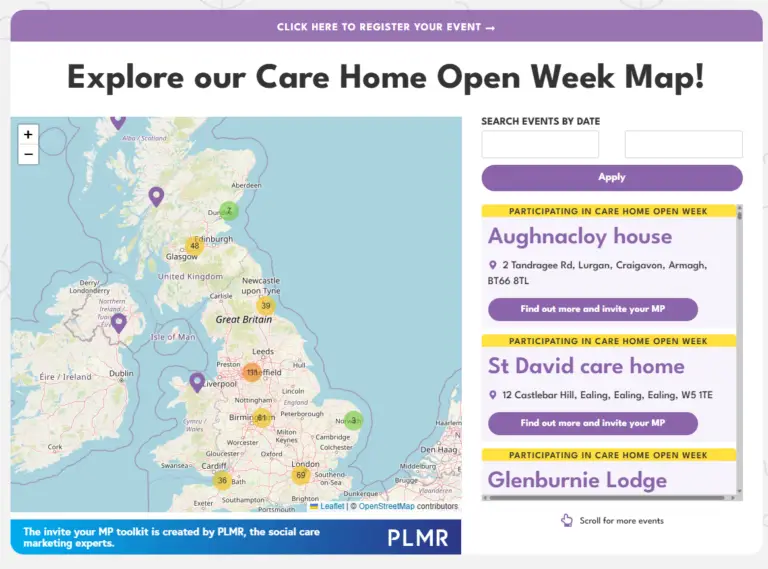The Government has today published its Devolution White Paper, setting out its plans to provide mayors across England with further powers and funding to ‘relight the fire of our economy and ignite growth in every region’. The key features of this paper are set out below.
Local Government
The Government is introducing ‘Strategic Authorities’ to enhance regional coordination and governance. The ambition is for universal coverage of these Strategic Authorities in England. These authorities will be classified into two types: Foundation Strategic Authorities (these will include non-mayoral combined authorities and combined county authorities, as well as any local authority designated as a Strategic Authority without a Mayor), and Mayoral Strategic Authorities (for example the Greater London Authority and all Mayoral Combined Authorities), with further progression to Established Mayoral Strategic Authorities for those meeting eligibility criteria. Mayoral authorities are the preferred model, offering deeper powers, including integrated funding settlements and broader responsibilities across key areas such as transport, infrastructure, housing, economic development, and public service reform. The Government also aims to ensure collaboration between strategic authorities and district councils, particularly in two-tier areas.
The Government has proposed a list of areas of competence which it would like to engage with the local government sector on. These areas are where Strategic Authorities will have a mandate to act strategically to drive growth. The proposed list is:
- Transport and infrastructure
- Skills and employment support
- Housing and strategic planning
- Economic development and regeneration
- Environment and climate change
- Health, wellbeing and public service reform
- Public safety
To address funding challenges, the Government will implement a £1.3 billion grant in 2025/26, as announced in the Autumn Budget. This will now include a £600 million Recovery Grant to assist councils with greater financial needs. This will help stabilise council budgets and along with council tax and business rates, provide a 3.2% increase in core spending power. Future plans include multi-year funding settlements for better planning, streamlined grants, and simplified reporting requirements. Additionally, business rate retention will be reformed to create a consistent system that supports regional growth, particularly for Strategic Authorities.
All two-tier areas and smaller or failing unitary authorities will be expected to develop proposal for reorganisation. New unitary councils are expected to serve populations of at least 500,000 to achieve efficiency and financial resilience. The reorganisation process will proceed in phases, balancing the need for devolution with addressing structural failings. Support will be provided to ensure smooth transitions, including postponing local elections where necessary.
These changes reflect the Government’s commitment to empowering local authorities, improving service delivery, and driving sustainable regional growth through streamlined governance and funding models.
Devolution Framework
The Government will legislate the statutory functions and governance arrangements for each level of Strategic Authority. Once designated, Strategic Authorities will automatically assume the corresponding responsibilities for their level.
The enhanced Devolution Framework will empower Mayors and Strategic Authorities with greater control over funding, planning, and service delivery to drive local growth and meet regional priorities. Established Mayoral Strategic Authorities will benefit from Integrated Settlements, allowing them to allocate funding based on local needs.
For Established Mayoral Strategic Authorities, there will be opportunities to propose additional powers or pilot new functions beyond the statutory framework. This process, aimed at fostering innovation and testing solutions, will occur annually ahead of fiscal events. Proposals will be reviewed through the Mayoral Council, after which formal submissions can be made, and the Government will be obligated to respond. This approach ensures a dynamic and evolving devolution framework that supports local authorities in achieving their strategic objectives.
Devolution Priority Programme
Ahead of the English Devolution Bill coming forward, the Government will focus on places which are ready to move quickly through a new ‘Devolution Priority Programme’. When considering which areas will work the Government will take into account the following principles:
- Scale: Strategic Authorities should be of comparable size to existing institutions. The default assumption is for them to have a combined population of 1.5 million or above, but they accept that in some places, smaller authorities may be necessary.
- Economies: Strategic Authorities must cover sensible economic geographies with a particular focus on functional economic areas, reflecting current and potential travel-to-work patterns and local labour markets.
- Contiguity: Any proposed geography must be contiguous across its constituent councils (either now or with a clear plan to ensure contiguity in the future through agreed local government reorganisation).
- No ‘devolution islands’: Geographies must not create devolution ‘islands’ by leaving areas which are too small to go it alone or which do not have natural partners.
- Delivery: Geographies should ensure the effective delivery of key functions including Spatial Development Strategies, Local Transport Plans and Get Britain Working Plans.
- Alignment: The Government will seek to promote alignment between devolution boundaries and other public sector boundaries.
- Identity: A vital element of successful devolution is the ability for local residents to engage with and hold their devolved institutions to account.
Impact on key sectors
Planning and Housing
Elliot Hawkes, Account Manager, PLMR
As part of a strategy to accelerate delivery the White Paper promises new strategic powers for elected mayors over infrastructure and development projects across areas. In particular, combined authority mayors will be given additional powers akin to the Mayor of London – including control of grant funding for regeneration and housing delivery and an ability to set the strategic direction of any future affordable housing programme.
They will also be given management powers that include the ability to call in planning applications of strategic importance, and an ability to charge a “Mayoral Levy” to ensure that new developments come with the necessary associated infrastructure. Linked to these changes are integrated settlements, which are effectively a single funding pot that mayors can spend however they see fit – which moves away from the battle for funding pots that has existed previously.
As part of the government’s commitment to move towards a universal system of strategic planning, all areas, both areas with a Strategic Authority and those without, will be required to develop Spatial Development Strategies over a strategic geography, and within a defined timeframe.
Once a spatial development strategy is approved, mayors will have access to development management powers, allowing them to intervene in planning applications of potential strategic importance, apply compulsory purchase orders, and establish mayoral development corporations. A review will also be conducted on the current requirement for consent from local planning authorities.
Finally, another key aspect aimed at accelerating housing delivery is a shift to a more regionalised model for Homes England, allowing the agency to “better respond to local needs”. For those foundational strategic authorities they will benefit from targeted support including with the development of a shared development pipeline and action plan – with long-term ambitions to move towards full devolution of funds and delivery for affordable housing as part of fully devolved England.
Health and Social Care
Roger Greer, Associate Director, PLMR Healthcomms
The Devolution White Paper is another Government strategy amongst a growing list; and is another moment of policy reset from the Labour Party since it took power in July.
With so many challenges facing sectors right across the policy landscape, it is no surprise that the Government is seeking to radically change the way that services are delivered in line with other policy ambitions.
Wes Streeting has set out his three shifts (from analogue to digital, from acute to community, and from sickness to prevention) which will form the basis of his policy platform and underpin the development of the 10 Year Health Plan. However, Government policy in recent months have run contrary to these shifts, with the recent Budget investing money in treatment at acute hospitals to solve short term backlog challenges.
It is essential that the key policy levers in this White Paper align fully with Department of Health and Social Care plans, including the 10 Year Health Plan and wider work of Government, including the Industrial Strategy and Life Sciences Sector Plan.
A shift to a more devolved health and social care landscape, with power and accountability sitting with local authorities, Mayors and ICSs is a bold one, and will require political direction and permission. Currently, ICSs are not fully realising their potential, and further power devolved to them, and linked to local needs and priorities (and supported by local decision makers and investment) can help to drive further work in this space.
It is positive to see the Life Sciences sector highlighted as a key area of growth to be enabled in regions of the UK through this White Paper (particularly in delivering better patient outcomes, supporting local economies, and driving GDP growth), as it aligns particularly well with DHSC priorities and the work of the Office for Life Sciences (OLS).
It is also positive to see the other determinants of health noted in this White Paper, including environment, housing, jobs and transport. With further focus on prevention within local authorities and based on local need, the health of local populations can be supported through multi-agency collaboration and engagement, linking health outcomes to those areas of policy which are downstream to NHS admissions.
However, delivering real change in the health of the nation cannot be realised without a strategy for social care. Although it has been highlighted before, during and after the election as a key plank of solving many of the issues in the NHS. Without the reform of the Care sector as a central plank of this Devolution White Paper, many of the challenges within health and care will remain unresolved.
The success of this White Paper for health and care will also be impacted by the culture of the NHS and the parts of the system which impact on health. There is a need for ICSs and other public bodies at local level to drive better outcomes through more effective accountability structures, and be given permission and power to deliver local and regional strategies that meet the needs of their population, with a decentralisation of power and control from DHSC and NHS England, to Mayors, ICSs and local bodies.
The NHS has seen many top-down restructures in its 77-year history, and part of the challenge for NHS bodies is managing an ever-changing policy landscape, whilst dealing with day-to-day priorities – caring for patients at the point of care, many of whom have co-morbidities. The reform of the health and care sector requires the empowerment of local bodies, as well as a national strategy that supports the prevention agenda, a move to more local care, and a life sciences sector firing on all cylinders.
This White Paper is a welcome one in starting the conversation around these shifts, and enabling local bodies to see health within the wider context of other policy areas. Without real support, investment and empowerment of local bodies to shape and deliver better health and care services, it will be just another opportunity lost.
Energy and Sustainability
Oscar Crowe, Account Executive, PLMR
The English Devolution White Paper sets out an array of measures aimed at empowering local authorities to play a more significant role in achieving the Labour government’s clean energy transition and ambitious net zero targets. By expanding the responsibilities of Mayoral Combined Authorities (MCAs) and Strategic Authorities, the White Paper outlines how local priorities can be better integrated with national energy and climate strategies.
One of the key measures highlighted in the White Paper is the devolution of retrofit funding as part of the Warm Homes Plan, which will be incorporated into Integrated Settlements by 2028. This funding is designed to enhance energy efficiency in homes and public buildings, helping to reduce energy bills and lower carbon emissions. The White Paper specifies that existing national schemes, such as the Social Housing Decarbonisation Fund and the Public Sector Decarbonisation Scheme, will transition to local control, allowing authorities to tailor these initiatives to meet regional needs more effectively.
The White Paper also sets out a clear framework for Local Power Plans, which will be overseen by Strategic Authorities. Supported by Great British Energy, these plans aim to deliver up to 8GW of additional renewable energy capacity from small to medium-sized projects by 2030. This initiative seeks to bolster local renewable energy generation while improving energy resilience across regions.
Further measures outlined in the White Paper focus on supporting local climate action by broadening the responsibilities of Strategic Authorities. These include playing a more prominent role in decarbonisation, energy system planning, and Local Nature Recovery Strategies, which aim to restore biodiversity and strengthen climate resilience. The White Paper highlights how devolved funding will help build pipelines for net zero projects, including renewable energy initiatives and building decarbonisation programs.
On heating, the White Paper introduces heat network zoning, assigning Strategic Authorities the role of designating zones for low-carbon heating systems, such as district heating networks. This aligns with their engagement in Regional Energy Strategic Plans alongside the National Energy System Operator, which aims to ensure that local priorities are incorporated into national energy planning.
The White Paper also provides a foundation for Strategic Authorities to take on new responsibilities in the future, including in areas such as water management, pollution control, and flood resilience. This incremental approach aims to allow authorities to prepare for an expanded role in addressing environmental challenges while tailoring solutions to local conditions.
Ultimately, the White Paper outlines a proposed framework which attempts to empower Strategic Authorities to lead on the energy transition, decarbonisation, and nature recovery, enabling more localised approaches to achieving net zero while supporting broader national goals.
Skills and Education
Ben Farmer, Senior Account Manager, PLMR
Central to the government’s approach is to provide Strategic Authorities the devolution of non-apprenticeship adults skills funding. For Mayoral Strategic Authorities, this will combine and un-ringfence funding for the Adult Skills Fund, Free Courses for Jobs, and Skills Bootcamps from 2026/27 onwards. For Established Mayoral Strategic Authorities, this will form part of their Integrated Settlements from 2025/26 onwards. Foundation Authorities will continue to receive devolved Adult Skills Fund alongside ringfenced funding for Free Courses for Jobs and Skills Bootcamps.
The Government expects Local Skills Improvement Plans to be clearly linked to Local Growth Plans, relevant parts of the Industrial Strategy and Skills England’s assessment of skills needs.
To ensure the policy is implemented effectively, the Government will align Local Skills Improvement Plan geographies with Strategic Authority geographies wherever possible. Strategic Authorities and Employer Representative Bodies will work with Skills England to ensure insights from Local Skills Improvement Plans are fed into the national picture.
The Government has pledged to continue to ensure that there is a national and consistent approach to education and training for 16–19-year-olds. However, Mayoral Strategic Authorities have a crucial role in ensuring there are clear pathways of progression from education into both further and higher education and local employment opportunities and the government will work with Mayoral Strategic Authorities to develop the tools needed to support them in delivering this. Initial steps include:
- Ensuring Mayoral Strategic Authorities have regular, structured opportunities to feed their priorities into the Department for Education’s annual strategic conversations with colleges to inform and help the further education sector in shaping provision that includes clear pathways of progression from education into further/higher education or local employment opportunities.
- Working with Mayoral Strategic Authorities to use their convening powers and influence to secure work and industry placements with local employers that relate to 16-19 education, training and career paths.
- Providing joint ownership of the Local Skills Improvement Plan model (see above) will also give Strategic Authorities a clear mechanism to help inform the skills offer locally. As part of these new joint ownership arrangements for the Local Skills Improvement Plans model, Strategic Authorities and Employer Representative Bodies can ensure the Local Skills Improvement Plan facilitates opportunities for 16–19-year-olds to undertake apprenticeships, education and training that lead to good quality employment opportunities.
Click here for the PDF copy.




